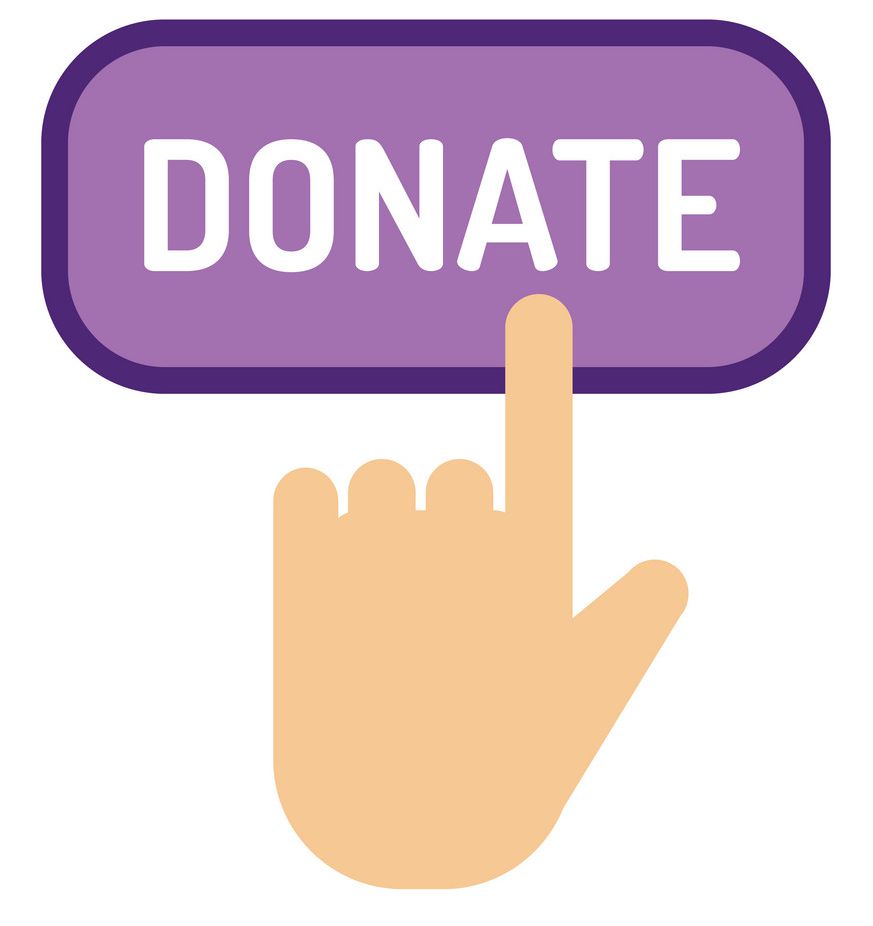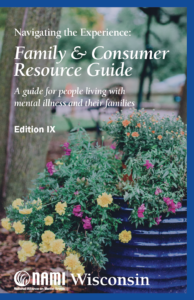Just “Click” on Linkage to view the Newsletter
NAMI March 2023 Newsletter (1)
September 2023 NAMI Newsletter b
NAMI Ozaukee December 2023 Newsletter
NAMI Ozaukee March Newsletter v2
June 2024 NAMI Ozaukee Newsletter
September 2024 NAMI Newsletter
Click on the month linkage to download the a PDF file to your Computer
NAMI Fast Track Resource Guide
Tools and Resources for NAMI Leaders
November 2016
Fast-Track Resource Guide <- Click Here to Download
Please make a tax deductible donation to
NAMI Ozaukee at our new secure site:
Click on the above Donate button and…
Thank You!
Substance Abuse and Mental Health Services Administration
The below monograph examines a wide range of evidence-based practices for screening and assessment of people in the justice system who have co-occurring mental and substance use disorders (CODs). Use of evidence-based approaches for screening and assessment is likely to result in more accurate matching of offenders to treatment services and more effective treatment and supervision outcomes. This monograph is intended as a guide for clinicians, case managers, program and systems administrators, community supervision staff, jail and prison booking and healthcare staff, law enforcement, court personnel, researchers, and others who are interested in developing and operating effective programs for justice-involved individuals who have CODs. Key systemic and clinical challenges are discussed, as well as state-of-the art approaches for conducting screening and assessment.
Click Here -> SAMSA Screening of Co-Occurring Disorders
Navigating the Experience
Edition IX
NAMI Wisconsin offers a reference tool: Navigating the System. You can download the entire manual or, access individual sections of it while online.
Scroll down to download your own PDF copy to your computer
Click here ->FACRG-March2020-web
Navigating the Experience
TABLE of CONTENTS
GUIDE PURPOSE……………………………………………………6
HOW CAN NAMI HELP?………………………………………….7–11
MENTAL ILLNESS OVERVIEW………………………………….12–17
TAKING THE FIRST STEP…………………………………………18–19
MENTAL HEALTH SERVICES OVERVIEW…………………..20–47
Therapy………………………………………………………………21
Developing a Relationship with your Provider…………22-23
Medication ………………………………………………………..24–25
Assertive Community Treatment…………………………..26–27
Inpatient Care…………………………………………………….28–29
Housing & Residential Care ………………………………….30
Peer Support ……………………………………………………..31–33
Families & Children ……………………………………………34–35
LGBTQ+…………………………………………………………….37
Farmers & Rural Communities……………………………..38
Online Resources………………………………………………..39
Veterans…………………………………………………………….40–41
Dual Diagnosis Services……………………………………….42-43
Complementary Approaches ………………………………..44-45
WORKING WELL with PROVIDERS:
Tips for People Living with Mental Illness and
their Family Members………………………………………….46-47
HOPE & RECOVERY………………………………………………48-51
What is Recovery?………………………………………………48
Tools for Recovery ………………………………………………49
Promoting Recovery ……………………………………………50
Stories of Recovery ……………………………………………..51
MENTAL HEALTH CRISIS OVERVIEW …………………….52–65
What is a Crisis?…………………………………………………53
Basic Steps to Take in a Crisis……………………………….54
Safe Police Interactions……………………………………….55
Tools for Crisis Prevention …………………………………..56
Introduction to Civil Commitments……………………….57
What is a Commitment?………………………………………58
Why do Commitments Occur?……………………………..59
How does a Commitment Begin?…………………………..60
How does an Emergency Detention Work?……………..61
Commitment Process & Outcomes………………………..62-63
What are My Rights?……………………………………………64-65
HEALTHY RELATIONSHIPS………………………………………66–72
Self-Care: Tips for Family Members……………………….67
Guidance for Family Members:
Healing Relationships During Crises………………………68-69
Guidance for Family Members:
Disagreement about Treatment Needs…………………….70-71
Guidance for Family Members:
Responding to Delusions……………………………………………72
LEGAL ISSUES……………………………………………………….73
SELF-ADVOCACY IN THE WORKPLACE………………………74-75
CRIMINAL JUSTICE RESOURCES………………………………76-77
ADVOCATE FOR CHANGE!……………………………………….78
SAMPLE DOCUMENTS……………………………………..………..79-80
RESOURCE DIRECTORY………………………………………….81-92




